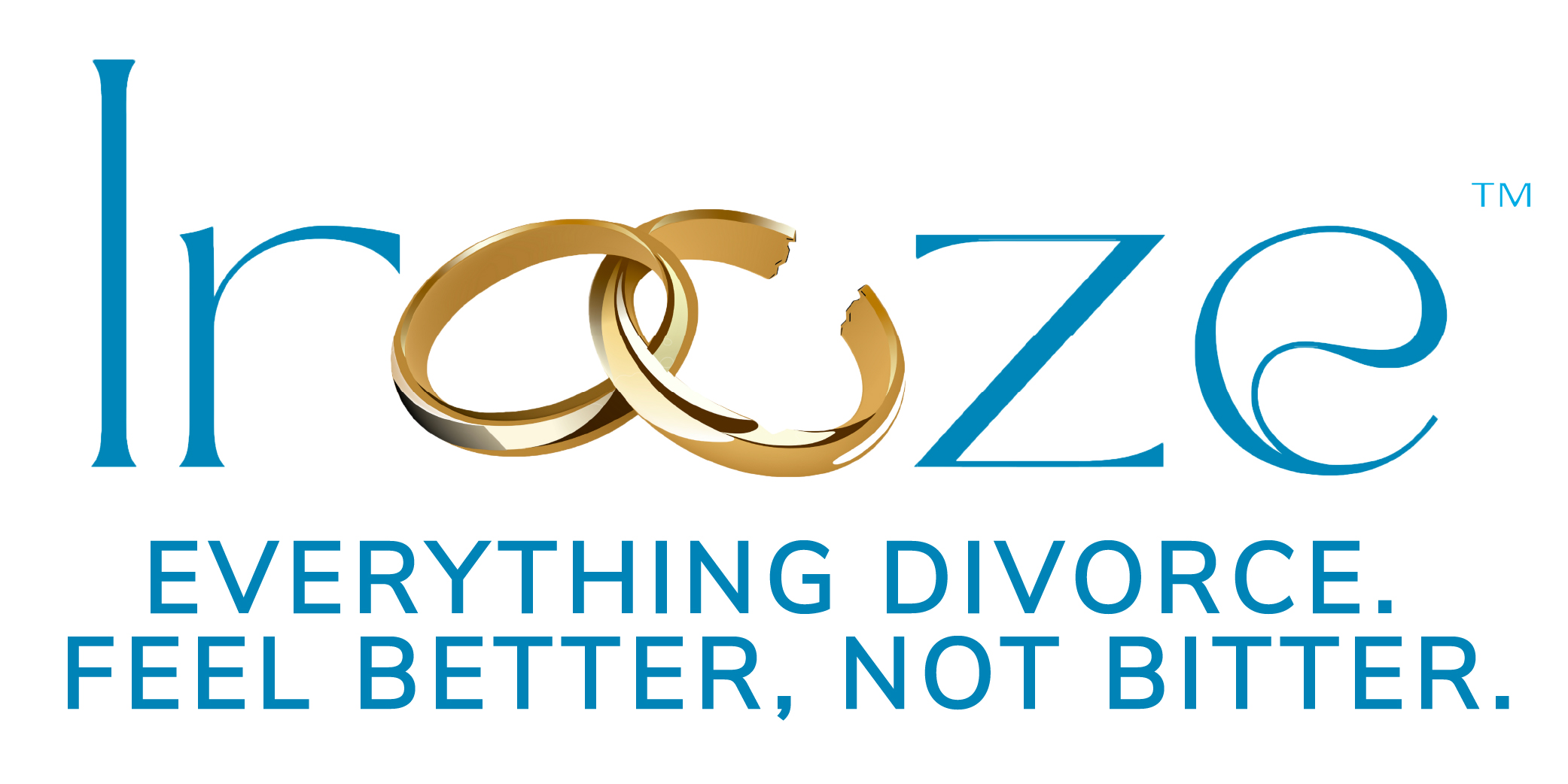The dramatic changes to your life after divorce can be overwhelming and lead to an almost confusing mix of feelings, ranging from relief to grief and uncertainty. One of the most difficult challenges you may face is the sudden lack of companionship and feelings of loneliness that can develop after your separation. Even if there were problems in the marriage before, adjusting to life alone and not sharing your living space with a partner can make the quiet feel daunting.
This experience, often referred to as divorce loneliness, can feel all-consuming when you’re unsure how to differentiate between being alone and truly feeling lonely after divorce.
While loneliness can feel defeating and disempowering, being alone can present you with a transformative opportunity to reconnect with yourself, to heal and to discover who you are now outside of the marriage or relationship post-breakup.
What will make the difference for you? Reframing how you see your time alone. Instead of thinking of it as empty time and space to be filled, or focusing on the “lack”, your time alone can be the portal for self-connection, self-discovery and growth. In this article, we’ll talk about the differences between the two, why being alone after divorce can feel so overwhelming and ways that you can shift your perspective to feel fulfilled while alone.
Understanding Loneliness vs. Being Alone
Feeling lonely and being alone aren’t the same thing and it’s important to be able to make the distinction. Let’s dive in.
What is Loneliness? Loneliness is an emotional state, a longing for connection, often involving feelings of emptiness, sadness or apathy. As social creatures, we are wired to seek connection and so it’s to be expected that when we feel disconnected from others and even ourselves, we will feel lonely. Loneliness can strike even when we aren’t physically alone; how often have you felt lonely in a crowd of people or within your relationship? Loneliness surfaces when we feel disconnected and yearn for that connection.
It’s important to recognize that emotional loneliness stems from a lack of meaningful connection, while physical aloneness is simply the absence of others around. Addressing emotional loneliness requires internal work, not just external companionship.
After a divorce, loneliness can develop when those previously familiar routines, rhythms, and presence of others suddenly isn’t there. This feeling intensifies when it ties into feelings of being unloved or unlovable, or when our fears of never finding connection again dominate our thoughts. Loneliness feeds on those fears and amplifies them.
What Does Being Alone Mean? Being alone is simply the physical reality of being by yourself with no one around you. You can be alone anywhere—at home, at work, on a walk. It’s a circumstance with no connection to internal feelings. What makes being alone transformative? It’s the intention with which you approach it. Your solitude doesn’t have to mean loneliness and isolation—it can actually bring you the opposite in terms of opportunities for growth, creativity and clarity. The intentionality is the choice of stepping away from the bustle of the outside world and turning inward, to create space and connection for yourself.
The Cultural Stigma Around Being Alone: Especially in the world of social media, where everyone is sharing the high points of their lives, presenting their relationships as “perfect”, fulfilling and the height of happiness, it can be easy to fall into the trap of romanticizing romantic relationships and couple hood. With that impression comes the idea that the opposite—being alone—is something to be avoided, something undesirable, or even seen as a sign of failure. For those navigating life after divorce, this impression can stab at those feelings, amplifying them and making us feel like there is something “wrong” with us, or that we’re missing out on good things in life if we don’t have it.
That’s not realistic. Reframing time alone as a chance to connect with yourself is key to empowering yourself during this time. We tend to rely on or expect others to bring us fulfillment, when the reality is that true meaning and happiness have to come from within. Your time alone is the perfect opportunity to do just that and create the best relationship you’ll ever have: your relationship with yourself.
Why Loneliness After Divorce Feels So Intense

The end of a marriage signifies much more than simply a relationship or partnership; it’s the loss of personal identity, lifestyle, and expectations for a shared future. You’re left coping with the dramatic physical and emotional changes after divorce, which often leave people feeling lost and amplifying those feelings of loneliness.
Loss of Familiar Routines and Shared Companionship: Even when a marriage is troubled, as is usually the case leading up to divorce, married life involves certain routines and rhythms around daily life. The absence of those basic, daily shared experiences can leave you feeling a little lost.
Fear of an Uncertain Future: What once seemed locked in now feels completely destabilized. Feelings of isolation can be compounded by fear of the unknown and uncertainty of the future. You may find yourself asking yourself: “What will my future look like after this?” “Will anyone ever love me again?” and those fear-based questions can chip away at your security and feelings of self-worth.
Internalized Messages About Self-Worth: Self-worth often takes a hit after divorce, where it’s not uncommon to feel that the divorce represents a failure or reflects on you in terms of perceptions of inadequacy. Our inclination toward negative self-judgment around being alone can compound those feelings of loneliness and isolation, when rather than engaging in self-doubt, it’s important to remember that being alone is simply a neutral physical reality rather than a reflection of personal flaws and failures.
Emotional Exhaustion from Divorce Dynamics: Court battles can leave you drained physically, financially and emotionally, but they also keep you busy and focused. Once those issues are eventually settled, the quiet that follows can feel overwhelming, leaving you to wonder what you’re supposed to “do” or fill your time and energy with, highlighting the feeling a void left behind. Sometimes as well, the chaos of court battles filled with animosity can delay you from going through the grieving and healing process, and so once the legalities are settled, everything else that was pushed aside may come back to you in a rush.
Unresolved Grief and Unmet Expectations: Even if you were unhappy or you were the one who initiated the divorce, the experience itself still involves a certain level of grief at the end of a shared life together, and the end of what your vision may have been for the future. It can feel very lonely to be faced with what you hoped for or what you expected your life to be and the new reality.
With grace and self-compassion, when you recognize the contributing factors that can make feelings of loneliness, loss and isolation after divorce feel so intense, you can then take the steps to intentionally rebuild your life and reconnect with yourself in new and fulfilling ways.
These steps are essential when it comes to healing after divorce and coping with divorce loneliness in a healthy, empowered way.
How to Embrace Being Alone After Divorce

As with any challenge in life, one of the keys to overcoming the loneliness you may feel post-divorce is a shift in perspective and reframing how you view your current situation. It can feel intimidating to contemplate time alone, but it can actually be quite transformative. Even the word “solitude” has a more empowering connotation than “alone”. Your new solitude can be a time of healing, exploration and rediscovery with a shift in your mindset. You can reclaim that alone time as a positive and nourishing time in your life.
Reframe Alone Time as a Gift: Part of the healing process is practicing gratitude. Consider your alone time to be a gift for you to use to your highest benefit. Sometimes, after the tumultuous and intense period of physical physically reorganizing your life, or finding somewhere new to live, or court battles, what you may need is some quiet and time to pause, which you can lean into with some alone time.
Use this time to dedicate to you, to focus on yourself with self-care, or exploration of your new identity outside the marriage. Embrace the opportunity to create your own new routines and rhythms, to set your own pace to your new life.
Recognize the Potential for Healing: While keeping busy and diving into new activities can temporarily mitigate feelings of loneliness, those distractions may divert your healing process by keeping you from processing the emotions you’re experiencing after the divorce, such as grief, anger, relief or even hope.
Self-reflection through journaling or meditating can help give you insight into any lessons you learned from the marriage and what you want for yourself in the future. Spending time alone will give you time to clarify the patterns or habits you might want to adjust in order to create healthy relationships in the future.
Solitude as a Tool for Self-Awareness: Time alone can be time for you to rediscover and connect with your true self. Some people even consider it a form of “dating themselves”; dedicating time to activities or interests that bring you joy or that you’ve always wanted to do, with the express purpose of enjoying that time with yourself. When you learn to enjoy your own company, that fosters the growth of self-confidence, self-worth and independence.
Embracing the Power of Choice: Shifting the perspective of reluctantly enduring loneliness to one of intentional solitude empowers you to take control of your inner narrative. Instead of the disempowering tendency to ask yourself, “Why am I so alone?”, ask an assertive question such as, “What can I create/do/accomplish/learn with this time?” Whether its personal growth or physical or emotional wellness, time alone is a great opportunity to set new meaningful goals.
By reframing how you see your time alone, you can recreate what could otherwise be a time of loneliness into one of the most transformative times of your life. The important thing to do is to push aside the fear and allow your heart to open.
6 Tips to Cope With Loneliness After Divorce
Here are six actionable steps you can take to help you approach your alone time with intention; self-care and meaningful activities can transform what feels like a gaping void into a fulfilling and exciting new reality.
Create a Routine:
Create new structure, routines and rhythms that align with your desires and interests. Start with small goals or rituals that build into the bigger picture that will create your new daily life. Remember to schedule in activities or new hobbies that spark your joy. A new, fulfilling routine will foster feelings of stability and purpose, combating those overwhelming feelings of isolation and aimlessness.
Reconnect with Your Passions:
This time after your divorce is the best time to rediscover your identity and reclaim who you are now outside your marriage. Return to activities you loved but let slide or experiment with new activities or hobbies that you always wanted to try.
Cultivate Self-Compassion:
When we feel lonely, it often triggers negative and critical self-talk. Remember to practice self-compassion to replace the self-doubt, repeat affirmations such as “I am enough”, or “I deserve peace and happiness”, or any affirmations that resonate with you. Prioritize self-care to support your mental and physical wellness, such as relaxing baths, healthy eating or spending time in nature.
Build Meaningful Connections:
Loneliness can be exacerbated by a lack of connection with others in your life. Capitalize on your alone time for intentional healing, but also seek out connection with those already in your life or new ones that align with your values to bring positivity to your life. Find a divorce support group if you are looking to meet others sharing similar experiences, or volunteer at local community organizations to create a sense of purpose and find new connections.
Explore Personal Growth Opportunities:
This is the time to immerse in your own growth. Use this time to learn about yourself, build new skills and create new perspectives. You can work with a Divorce Coach to gain new tools to process your emotions post-divorce, and learn to navigate and cope with the transition.
Practice Gratitude:
Refocusing onto what you have in your life that you are grateful for rather than what you have lost engenders feelings of positivity and will remind you that there is good in your life. Ways to cultivate gratitude are using a gratitude journal where you record three things you are grateful for every day, or celebrating all wins, no matter how small, to remain mindful of the progress you are making.
It is normal to struggle with feelings of loneliness after a divorce. It can feel overwhelming and scary but you don’t have to linger in a black hole of isolation. By making the distinction between loneliness and being alone, you can take control of how you view things to reclaim your alone time as a positive force for growth and self-discovery.
Your time alone is a gift, not a punishment. It’s an opportunity to reconnect with yourself, rediscover your creativity and interests and reclaim your identity. Being mindful and intentional about the steps you take to embrace your solitude can cultivate newfound resilience, strength and purpose.
Everyone’s healing journey is unique to them and is not bounded by generalized timelines. Every step forward is significant and meaningful, bringing you closer to independence, freedom and empowerment. Lean into it. Use this time to explore, discover and create a future reality that is a product of your authentic self.
If you’re struggling with feelings of loneliness, you can find professional support in the Divorce Directory, where you can connect with Divorce Coaches experienced in guiding individuals through the post-divorce journey. If you’re not sure where to start, take the Self-Assessment Quiz, and become eligible for a free Strategy Session with a Divorce Specialist. It may feel lonely and difficult now, but you’re not alone, we are here to support you through this.
If this article resonated with you, consider sharing it or leaving a comment below, your experience could help someone else on their healing journey.
Disclaimer:
The information provided in this article is intended for general informational purposes only and is not a substitute for professional advice, diagnosis, or treatment. The content of this article should not be used as the sole basis for making decisions regarding your well-being. Always consult with a qualified professional before making any significant changes to your life or treatment plan.





